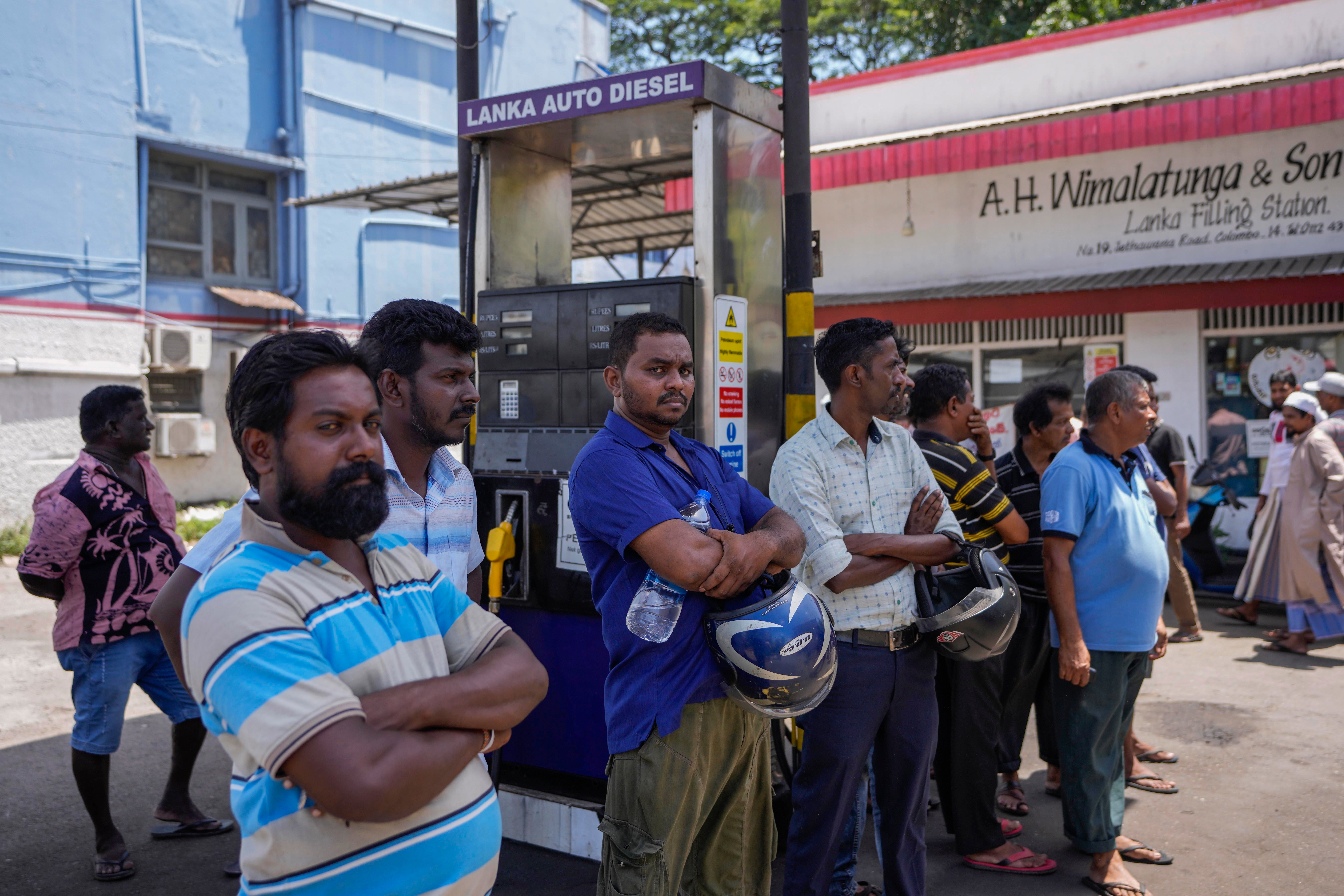With no fuel and no cash, Sri Lanka keeps schools closed
Cash-strapped Sri Lanka has extended school closures for one week because there isn’t enough fuel for teachers and parents to get children to classrooms

Your support helps us to tell the story
From reproductive rights to climate change to Big Tech, The Independent is on the ground when the story is developing. Whether it's investigating the financials of Elon Musk's pro-Trump PAC or producing our latest documentary, 'The A Word', which shines a light on the American women fighting for reproductive rights, we know how important it is to parse out the facts from the messaging.
At such a critical moment in US history, we need reporters on the ground. Your donation allows us to keep sending journalists to speak to both sides of the story.
The Independent is trusted by Americans across the entire political spectrum. And unlike many other quality news outlets, we choose not to lock Americans out of our reporting and analysis with paywalls. We believe quality journalism should be available to everyone, paid for by those who can afford it.
Your support makes all the difference.Cash-strapped Sri Lanka on Sunday extended school closures for one week because there isn't enough fuel for teachers and parents to get children to classrooms, and the energy minister appealed to the country's expatriates to send money home through banks to finance new oil purchases.
A huge foreign debt has left the Indian Ocean island with none of the suppliers willing to sell fuel on credit. The available stocks, sufficient for only several days, will be provided for essential services, including health and port workers, public transport and food distribution, officials said.
”Finding money is a challenge. It’s a huge challenge,” Power and Energy Minister Kanchana Wijesekera told reporters.
He said the government has ordered new fuel stocks and the first ship with 40,000 metric tons of diesel is expected to arrive on Friday while the first ship carrying gasoline would come on July 22.
Several other fuel shipments are in the pipeline. But he said authorities are struggling to find $587 million to pay for the fuel. Wijesekera said that Sri Lanka owned about $800 million to seven fuel suppliers.
Last month, schools were closed nationwide for a day due to fuel shortages and had remained closed for the last two weeks in urban areas. Schools will remain shut until Friday.
Authorities also announced countrywide power cuts of up to three hours a day from Monday because they can’t supply enough fuel to power generating stations. Sweeping power cuts have been a blight on Sri Lanka's economy for months, along with severe shortages of essentials including cooking gas, medicine and food imports.
Wijesekera said the main problem is the lack of dollars and appealed to some 2 million Sri Lankans working abroad to send their foreign exchange earnings home through banks instead of informal channels.
He said workers’ remittances, which usually stood at $600 million per month, had declined to $318 million in June.
According to the Central Bank, the remittances — the nation’s main foreign exchange earner — dropped from $2.8 billion in the first six months of 2021 to $1.3 billion in the same period this year for a decline of 53%.
The drop came after the government last year ordered the mandatory conversion of foreign currency. It said that black-market premiums have led people to hoard foreign currency.
Sri Lanka's has been getting most of its fuel needs from neighboring India, which provided it with a credit line. The government said it was also negotiating with suppliers in Russia and Malaysia.
Sri Lanka has suspended repayment of about $7 billion in foreign loans due this year out of $25 billion to be repaid by 2026. The country’s total foreign debt is $51 billion.
The economic meltdown has triggered a political crisis with widespread anti-government protests erupting across the country. Protesters have blocked main roads to demand gas and fuel, and television stations showed people in some areas fighting over limited stocks.
In the capital, Colombo, protesters have been occupying the entrance to the president’s office for more than two months to demand President Gotabaya Rajapaksa's resignation. They accuse him and his powerful family that included several siblings holding top government positions of plunging the country into the crisis through corruption and misrule.